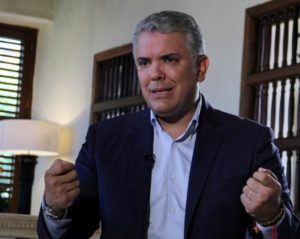Hey there Meridian Readers, we hope you’ve had a good weekend. Let’s dive in so you’re prepared for the week ahead.
How bad will the Coronavirus outbreak get?
Publication: The New York Times | By Knvul Sheikh, Derek Watkins, Jin Wu and
- As the coronavirus outbreak continues to spread, a flurry of early research is drawing a clearer picture of how the pathogen behaves and the key factors that will determine whether it can be contained.
- To determine this, we ask six key questions:
- How contagious is it? Moderately, similar to SARS.
- How deadly is it? The mortality rate seems to be about 3 percent.
- How long does it take to show symptoms? Estimated 2 to 14 days.
- How much have infected people traveled? A lot. The virus started in Wuhan, a transportation hub.
- How effective will the response be? The World Health Org has praised China’s efforts, but critics fear lockdown measures won’t cut it.
- How long until a vaccine is developed? One year, at minimum.
- While the virus is a serious public health concern, the risk to most people outside China remains very low, and seasonal flu is a more immediate threat.
- How to avoid any viral illness? Wash those hands.
Colombia rejects Venezuelan proposal to resume diplomatic relations
Publication: Reuters | By Luis Jaime Acosta, Angus Berwick, Oliver Griffin, and Heather Timmons 
- Here’s the deal: Colombia rejected Venezuelan President Nicolas Maduro’s proposal that the two countries resume diplomatic relations on Thursday, amid a dispute over a fugitive former Colombian congresswoman who was captured in Venezuela. Yikes.
- Maduro abruptly cut diplomatic relations with neighboring Colombia last February after Colombian President Ivan Duque helped Venezuelan opposition politicians deliver humanitarian aid to their crisis-stricken country.
- Colombia, like the majority of Western democracies, recognizes Venezuelan opposition leader Juan Guaido as the country’s legitimate president.
- “We see little possibility of providing consular and other services in Venezuela, plainly and simply because of the constant aggressions doled out by the dictatorship against many countries that have rejected it,” Duque told journalists Thursday.
- “Duque doesn’t want the truth to come out… he is going to get a surprise in the next few days,” Maduro said on state television on Thursday.
- What happens next?
- Colombia asked Guaido to secure Merlano’s extradition this week. The opposition leader committed to doing so, but he has no control over Venezuela’s police or judiciary. Stay tuned.
Foreign Relations Democrats ‘deeply frustrated’ after Iran briefing
Publication: The Hill | By Rebecca Kheel 
- The scoop? Members of the Senate Foreign Relations Committee said a classified briefing Tuesday on U.S. policy toward Iran revealed no new information to clarify the Trump administration’s justification for the drone strike that killed Iranian Gen. Qassem Soleimani.
- Most of the criticism came from committee Democrats, but Sen. Rand Paul (R-Ky.) also said he didn’t “think there was anything presented today that was new.” Paul previously fumed that a full Senate briefing on Iran was “less than satisfying.”
- Who was in the room?
- The Foreign Relations Committee was briefed behind closed doors Tuesday by the State Department’s special envoy for Iran, Brian Hook; principal deputy assistant secretary of State for near eastern affairs Joey Hood; and the department’s acting legal adviser, Marik String.
- Sen. Christopher Coons (D-Del.) commended Hook in particular for providing “an engaging articulation of their strategy” toward Iran, but said he remains “deeply frustrated” at the administration’s inability to answer Congress’s questions.
- “It was a generally deliberate, respectful conversation, but several members were deeply frustrated at clear refusal to provide any meaningful answers,” Coon said, tracing the shape of a zero with his hand when asked if there was any clarification on the justification for the Soleimani strike. “This was an exercise in physically showing up but not actually engaging in any meaningful” discussion.
- Sen. Corey Booker (D-NJ) added that there was “very little that was in that meeting that could not have been in open session.”















